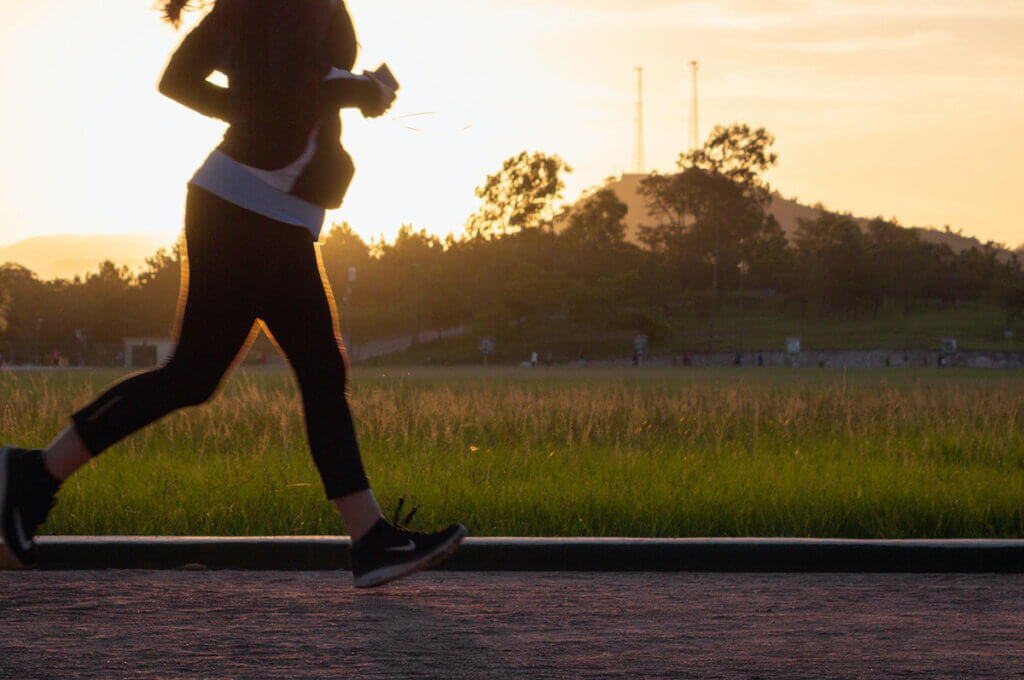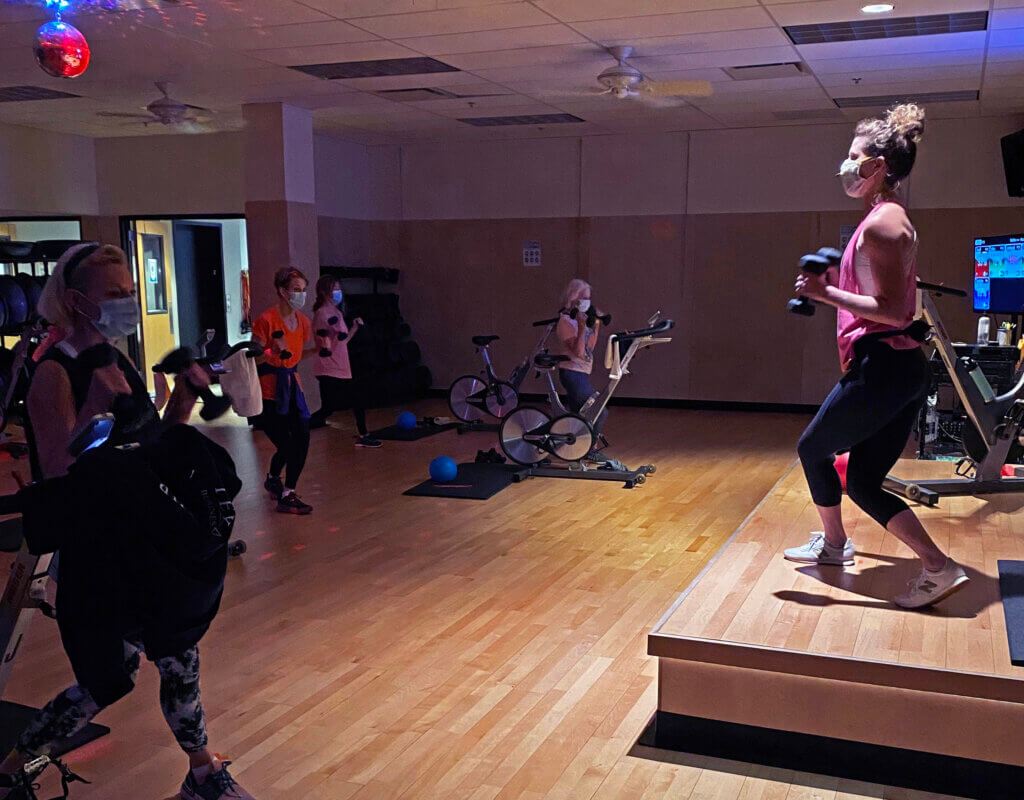
MAY IS MENTAL HEALTH AWARENESS MONTH
At Castle Hill Fitness, we focus on healthy minds as much as healthy bodies. All aspects of health are important, and mental health is not disconnected from the rest of the body. High levels of stress have a very real physical impact on our bodies- like, for example, impacting internal functions, sleep, immune response.
Tending to mental health requires the same commitment that exercising does. You exercise consistently to maintain the physical benefits. You stretch before and after a workout or take a rest day, to avoid overextending and injuring yourself. For Mental Health Awareness Month, we want to offer some of our go-to, researched practices to incorporate into daily living to boost your emotional health.
OUR TOP PRACTICES

EXERCISE
We’re not just saying this because we’re a gym! Among the many benefits of exercise, it’s scientifically proven to regulate and boost moods. Physical activity releases chemicals like endorphins that can ease anxiety, depression, and negative mood, improve cognitive function. Choose a workout that feels best for you! It could be a run, HIIT workout, Pilates, lifting weights… any form of physical activity will provide mental health benefits. Yoga in general is known for its calming and grounding properties. There are also many yoga styles that focus specifically on passive, restorative movement to soothe the nervous system and provide calm. Tai Chi has also been referred to as “moving meditation”: the slow, graceful movements and controlled breathing result in deep relaxation.
 ENJOY A SPA TREATMENT
ENJOY A SPA TREATMENT
In our Wellness Spas, you’ll find experienced professionals who will work to help you reduce stress, heal your body, and give your mind the reset it needs through Massage or Acupuncture treatments. In addition to promoting a deep state of relaxation, Acupuncture and massage will help reduce cortisol, a stress hormone that is released when we experience stress. Elevated levels of cortisol can impair all internal functions, such as sleep, digestive problems, anxiety, weight fluctuations, and immune response. Massage physically lulls the body into a restorative mode, thereby decreasing cortisol levels. Like exercise, massage and acupuncture aids in releasing feel-good endorphins like serotonin and dopamine.
MEDITATE
Even a few minutes of meditation will make an impact on your mental and emotional well being. According to this Harvard University study, consistent practice over the course of eight weeks even made measurable, structural changes in the brain.
There are many resources to help you with learning to meditate – get help with an app, teacher, or a class. Try to do it daily, no matter how much time you have.

Working out WHILE outside? Win-win.
SPEND TIME OUTSIDE
Go take a walk! Studies have shown that even 20-30 minutes of spending time outside can reduce stress levels. Exposure to natural light has been shown to boost serotonin levels, giving you a much-needed mood boost.
PRACTICE POSITIVITY
Actively practicing positive thinking helps to broaden our sense of possibility, engage in creative tasks, and build new skills. There are even techniques to accomplish this practice. On our blog, Pilates Instructor Lindsay Lark lends her expertise from working at the Wellness Program for Texas State, providing techniques for positive thinking!
UNPLUG
We digest information and the news 24/7, and that’s a pretty big source of stress nowadays. Allow yourself a digital detox and step away from the phone for a bit.
NOURISH YOURSELF
Good nutrition is a powerful tool in healthy living with benefits that go beyond feeling good physically. Studies found that diets rich in seafood, fruits and vegetables, nuts, and beans (and dark chocolate) – foods that are rich in fiber, unsaturated fat, antioxidants, and omega-3 fatty acids – had profound positive effects on mental health. For times when you really need to unwind, some dark chocolate and a soothing cup of tea can always do the trick! Common teas with ingredients that help calm the nervous system are chamomile, lavender, passionflower, or lemon balm.
SLEEP
Not only does lack of sleep affect your health in a wide variety of ways, but it also leaves you grumpy as heck. Make an effort to get your full eight hours – whether by sleeping in an hour later or going to bed an hour earlier over the weekend. If falling asleep is an issue, try lowering your caffeine intake, setting a stricter schedule for bedtime, disconnecting from your mobile devices an hour before bed, or take a warm bath.
LEAN ON YOUR COMMUNITY
We learned a very big thing pretty quickly last year: how vital community and connection are. When a global pandemic forced us physically apart, we still found ways to be together – virtually and in-person-but-far-apart. Having a real conversation with your loved ones about your struggles with mental health and needs can be a huge help!
DON’T HESITATE TO GET THE HELP YOU NEED
Professional help isn’t only for a crisis. The National Alliance on Mental Illness has resources to find support for yourself or a loved one. If you need someone to talk to, text Crisis Text Line at 741741.
Everyone has different experiences with their own mental health, and how to best support it. Find what works best for you, and make your self-care practice consistent. And remember, we’re here with all your options for stress-relieving movement and relaxation!